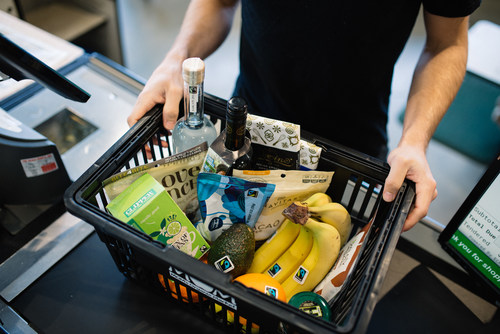Fairtrade America has shared five trends it expects will drive consumer choices and brand action in 2023.
Despite inflation and rising prices, research shows that consumers are still choosing products that align with their values, accoriding to the company. As consumers are becoming interested in and informed about supply chains, sourcing, and product sustainability, brands will need to invest in practices that drive loyalty among discerning consumers.
"Responsible shoppers in the US are demanding that companies and governments drive transformation that benefits the people who grow our food and protect the planet," said Carlos Urmeneta, director of commercial partnerships at Fairtrade America, in a statement. "As expectations of transparency and sustainability in the supply chain become more and more mainstream, we are partnering with farmers, retailers and brands to provide shoppers the assurance they are looking for in their favorite products."
Fairtrade America predictions include:
Consumers will change their diets to decrease environmental impact. According to a recent study by GlobeScan on behalf of the Marine Stewardship Council, 31 percent of U.S. consumers who have changed their diet have done so because of an environmental reason, with 11 percent saying they changed their diet specifically due to climate change. Fairtrade believes this number will only increase.
Consumers, governments, and organizations like Fairtrade are prioritizing a decrease in deforestation. Since 2000, 10 percent of the world's tree cover has been lost, with the world losing an area the size of London each week, according to the U.N. A recent GlobeScan survey found that 86 percent of consumers try to avoid products that damage biodiversity. Consumers are increasingly aware of deforestation, and more companies are pushing for bans on deforestation and for governments to enact legislation that would combat deforestation.
Supply chain due diligence requirements will become more prevalent. Oxford Economics found that 88 percent of companies have either created a clear mission statement around sustainability or they're in the process of writing one, but less than half of those respondents said they had significant visibility into their own sourcing of sustainable products, and only 21 percent had complete visibility into their supplier's sourcing of sustainable products. More retailers are seeking brands that can provide transparency along the supply chain.
Growth in products marketed as sustainable. The 2021 Sustainable Market Share Index found that sustainability-marketed products were responsible for a third of the growth in CPG from 2015 to 2021, and market share growth continues year over year. Products marketed as sustainable now hold a 17 percent market share, up 3.3 percent from 2015, with significant growth during the pandemic. As consumers continue to seek out sustainable options, companies aim to meet that demand by backing up sustainability claims.
Consumers and brands will prioritize regenerative agriculture practices. Regenerative agriculture describes farming practices that help decrease the impacts of climate change by working to replenish natural resources. Regenerative agriculture is focused on improving soil health and biodiversity. In a Food Insight survey, 30 percent of respondents selected regenerative agriculture as a top choice among the most beneficial agricultural and consumption practices.
Related: Datassential Reveals 2023 Trends in Food, Flavor; Boska Earns B Corp Certification

